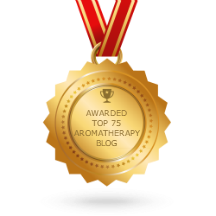To start with... which type of clay to use?
The most basic face mask, and probably the easiest to make is a blend of which ever type of clay is suited to your skin type, moistened with an appropriate hydrosol, to make a smooth "mud." Spread the moistened clay over your face, avoid the eye area, let dry, and rinse well with tepid water.
 A mask will always help with exfoliation, may dry excess oil, and can help your skin detoxify. There are those who say that the minerals contained in various clays can also be beneficial to your cells.
A mask will always help with exfoliation, may dry excess oil, and can help your skin detoxify. There are those who say that the minerals contained in various clays can also be beneficial to your cells.The "Fun" part of creating a face mask lies in selecting ingredients that are suited to your skin type.
First - Clays:
Commonly available clays helpful for various skin types.
GLACIAL CLAY
Glacial Clay is composed of particles that are small enough to create a powerful absorption factor for the skin and due to it’s chemical properties it has the ability to remove toxins and bacteria and dead skin cells to leave the skin healthy, purified, and smooth.
It stimulates the circulation, detoxifies, exfoliates dead skin cells while and smothes down wrinkles, leaving the skin soft, smooth and invigorated. It produces erythema (local skin warming), accelerates physiological processes and increases cell regeneration in surrounding tissues, improving skin elasticity and overall complexion. Because of the warming effect, I would avoid using Glacial Clay on very sensitive skin.
Because of its strongly detoxifying effect, Glacial Clay is highly recommended for skin plagued by acne, blackheads, pimples, etc.
SEA CLAY
Wonderful for oily skin Sea clay draws impurities like a magnet! It provides deep cleansing, tighten pores, revitalize the complexion and help clear problem skin. Sea clay is the best for oily skin due to its high mineral content. Due to its high content of minerals, sea clay draws oils from the skin, and is rich in algaes, macro- and micro-minerals, as well as sodium and sulphur. Sea plants, seawater, sea salt and oceanic clay have long been popular physical-therapy ingredients in Europe. Recommended as medical therapeutic agents as early as 1578, seawater and sea derivatives were administered for rheumatism and general rehabilitation. Sea clay is an important ingredient in body wraps to lose inches and cellulite.
WHITE KAOLIN

One of the mildest of all clays, French White Kaolin is suitable for the most sensitive skin. It will help stimulate circulation while gently exfoliating and cleansing. It does not draw oil from the skin so is a good choice for dry skin. It is also high in minerals known to be beneficial for oily or blemished skin. It can help heal blemishes and inflammation, while preventing more problems from forming. White kaolin clay soothes and softens the skin and is suitable for all skin types.
PINK KAOLIN
Pink Kaolin is the cosmetic clay for normal, sensitive and mature skin. It is the mildest clay and most widely used in cosmetics.
Pink clay is particularly useful for toning dull, tired, or devitalized skin. It also has excellent cleansing properties.
Enough typing for one evening. I'll post suggested hydrosols another day, or you may read the whole article online on our new "information about face masks page"


No comments:
Post a Comment